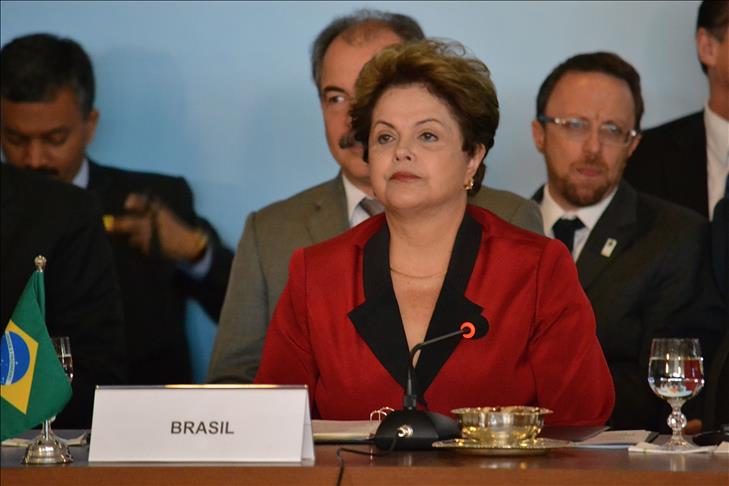
President Dilma Rousseff handed Brazil's Congress a package of long-awaited anti-corruption measures Wednesday, three days after mass protests demanded her impeachment and the ouster of corrupt politicians.
Rousseff delivered the bundle of anti-corruption measures symbolically at a ceremony held at the presidential Planalto Palace.
"We are a government that does not compromise on corruption ... This is a decisive step to increase the government's ability and power to prevent and combat corruption and impunity," she said.
The plans include the expansion of the so-called "Ficha Limpa" law until that will now require all government officials to have a clean criminal record, as well as the criminalization of unregulated electoral campaign slush funds, known as "Caixa dois," and the seizure of assets of those convicted of corruption.
The president said the move was "in line with her personal and political life, and actions taken as president" but warned that "aside from these laws, a new conscience is required; a new culture in the country" which needed to be "born in every citizen's household, school, heart and soul."
All the measures, which were part of the president's 2014 campaign pledge, had either been previously mooted or are already being processed by government.
The announcement came on the same day that a survey by the Datafolha polling institute showed Rousseff’s approval rating had slumped to its worst-ever level.
The surveyed of 2,842 registered voters on the two days following Sunday's mass protests found 13 percent of respondents evaluated the president as "good" or "excellent." In early February, 23 percent held this view.
Some 62 percent of those surveyed said Rousseff was "bad" or "terrible." Six weeks ago it stood at 44 percent.
The survey showed Rousseff's popularity had dwindled even among the poorest in society, traditionally stoically supportive of the president.
In recent history, only former president Fernando Collor de Mello saw a worse approval rating, after he was impeached in 1992 for a corruption scandal. At that point he had an approval rating of 9 percent, and rejection of 68 percent, according to the Folha de S.Paulo newspaper.
Hundreds of thousands of Brazilians protested in every one of the country's 26 states and the Federal District on Sunday. Crowds in São Paulo were estimated between 210,000 and 1 million people. Another Datafolha survey showed that while many attending the anti-government demonstrations were calling for impeachment, the majority were protesting against corruption in politics.
Many focused on the country's biggest-ever corruption scandal at oil giant Petrobras, which will soon see at least 54 individuals -- many of whom are senior politicians -- investigated over their alleged involvement.
Rousseff's supporters and allies had rallied large crowds last across the country Friday, in a pre-emptive counter protest against those who would call for her to be impeached.







